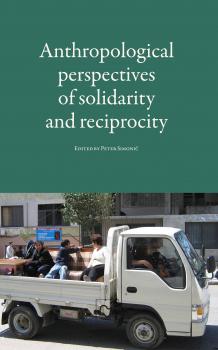Anthropological perspectives of solidarity and reciprocity
Keywords:
solidarity, anthropology, reciprocitySynopsis
The concept of solidarity is ambiguous: it includes mechanisms of taxes and redistribution, charity, altruistic contributions and political support, social policy, concessions, grants, funds, food, clothes, social entrepreneurship, sponsorship, NGOS, etc. Communitarianism, equality and progress are their ideological pillars. Solidarity in mass culture is a form of ideational and tangible redistribution. Sociology based on the Marxist tradition has been rejecting perpetuation and masking of fundamental economic, social and political inequalities, but their classless society remained attached to nation-states. Following the game theory in the late 20th century, sociological and economic solidarity became a matter of rational choice among alternatives of group belonging (intentional communities) that could bring the greatest “profit” to an individual.
Chapters
-
Alter Political Economy
-
Komunjsko, Skupno, and Seljansko - Legacy of Eastern Adriatic Commons
-
Communitarian Institutions in Trenta Valley
-
Co-Producing Participatory Guarantee Systems – Limits and Potentials
-
Cooperative Practices: Survival Strategies, “Aternative” Movements or Capitalism Re-Embedding?
-
New Transition: Community Gardens and Civic Engagement in the City of Zagreb
-
Reciprocity and Solidarity in the Face of the Spanish Home Repossessions Crisis
-
For a New Social Order. A Genealogy of Self-Management in SFRY
-
Solidarity and the Feelings of Belonging: Textile Industrial Workers in the Socialist and Post socialist Slovenia
-
Trade Unions Fragmentation in Slovenia. Causes and Lessons
-
'Repaying the Suffering' in Transnational Families from Kerala, South India
-
Looking for a City with Foundations: Intentional Urban Communities as a Christian Response to Justice and Power
-
The Spirit of Social Cohesion and Sharing in Relation to Dance Consumption Practices in Contemporary Swing Dance Communities
-
Orgunity as a New Form of Cooperation: Case Studies of Two Environmental NGOs
Downloads


